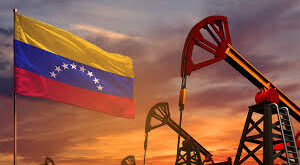Saudi energy minister Prince Abdulaziz bin Salman said Feb. 4 the kingdom was waiting for clearer signs of rising oil demand before committing to hike crude production with its OPEC+ counterparts, while also warning that western sanctions on Russia would lead to supply shortages.
China’s reopening and encouraging economic data from some major consuming countries in recent weeks has prompted some oil market forecasters to project firmer demand in the coming months, but Prince Abdulaziz told an energy economics conference in Riyadh that he was yet to be convinced.
“With all due respects, forecasters are good forecasters. They do their best but not necessarily what they forecast happens as a reality. So, if people can adapt it to my other mode, which is, ‘I will believe it when I see it, and then take action’ — it’s a much more profound, self-assuring, cautious approach,” he said.
The minister’s comments follow the Feb. 1 recommendation by a key OPEC+ advisory committee for the alliance to maintain current output quotas.
OPEC+ is a 23-country bloc of oil producing countries co-chaired by Saudi Arabia and Russia. It agreed in October to slash quotas by 2 million b/d from November until the end of 2023.
The group’s cautiousness comes amid the backdrop of continued risk of a global recession as well as rising COVID-19 cases in China, which could dampen consumption in the world’s largest oil importer.
Crude prices, which began the year with bullish momentum, have retreated in recent days. Platts, part of S&P Global Commodity Insights, assessed Dated Brent at $80.62/b on Feb. 3, down from the benchmark’s eight-week high of $88.21/b on Jan. 23.
Sanctions, embargoes
Prince Abdulaziz also spoke out against western sanctions on Russian oil trade, saying they were detrimental to ensuring security of supply, with potential to hurt further investment in the hydrocarbons sector.
“Sanctions, embargoes, lack of investments will all convolute into one thing and one thing only — lack of energy supplies when it is most needed, [which] is something I don’t want to be responsible for,” he said.
The G7 on Feb. 3 announced its long-awaited price caps on Russian fuel products, which go into effect Feb. 5. The move follows caps enforced in December on the sale of Russian crude. Both actions are meant to limit the revenue Moscow can accrue from energy exports as part of the West’s broader multilateral response to Russia’s invasion of Ukraine.
The price cap was set at $100/b for the sale of refined products that trade at a premium to crude, particularly diesel. Products that trade at a discount, such as fuel oil and naphtha, are capped at $45/b.
The EU is also banning the import of Russian refined products from Feb. 5, having already imposed a similar prohibition on Russian crude in December.
Prince Abdulaziz noted that distortions in some markets can have ripple effects across other commodities. Saudi Arabia has backed western oil sanctions on geopolitical rival Iran, which have blocked much international trade of Iranian barrels.
The minister said his warnings about the impact of the sanctions on Russia were not politica but rather rooted in the practical impacts on the market, and added that Saudi Arabia was supplying Ukraine with LPG.
“I don’t get into this sanctions business. I focus on the reality of the day, with what is happening,” he said. “I hope [the sanctions on Russia] would not lead to shortages of energy supplies – not [just] oil supplies but energy supplies.”

 Iran Energy News Oil, Gas, Petrochemical and Energy Field Specialized Channel
Iran Energy News Oil, Gas, Petrochemical and Energy Field Specialized Channel



